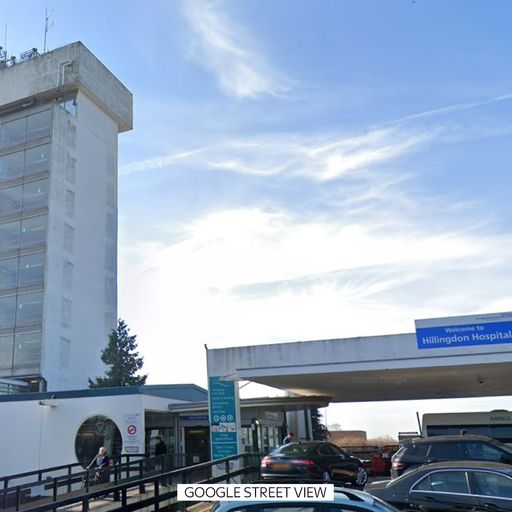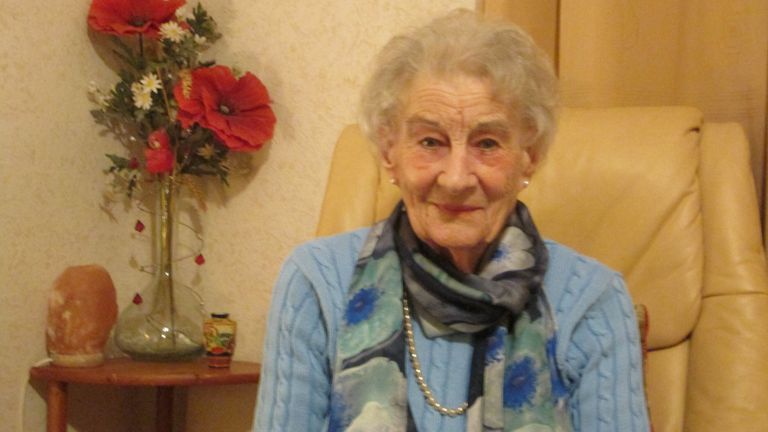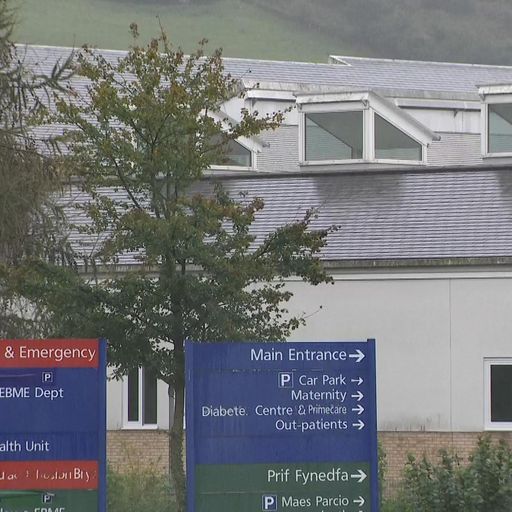An increasing number of people who need hospital treatment for COVID-19 in England actually caught the virus while in hospital, Sky News has learned.
On Monday, a quarter of new hospital admissions for COVID-19 were people who had potentially acquired it in hospital, while the figure was 23% the day before, according to NHS England.
This is compared with around 18% of all new hospital cases on 6 October.
However, it is difficult to know for certain where someone with COVID-19 may have been infected.
A COVID-19 patient is deemed a "probable hospital-acquired infection" if they test positive eight to 14 days after being admitted.
The number of probable hospital-acquired infections has been steadily climbing since September, causing concern among medical professionals.
Professor Carl Heneghan, a leading academic of evidence-based medicine from Oxford University, is calling for the government to step in and has warned that if nothing is done, it could prolong the UK's epidemic.
"The government needs to have an urgent look going forward at how we structure the NHS and in particular look at how we keep people separate, such as those who have COVID-19, from those who are in for other conditions, like the elderly," he said.
"If we don't do this, what will happen is these infections will prolong the outbreak as it will be incredibly difficult to get the numbers down in hospitals."
Kiera Chapman lost her "lively and gentle" grandmother to COVID-19 this week, and believes her loved one became infected in hospital.
Brenda Baker, better known as Ann to her family, was 93 years old.
She went to hospital after a fall in late November and just a week later her family was told she had tested positive for coronavirus.
Her health deteriorated and she passed away two weeks later.
"When I heard that she had a positive COVID test I just felt a sense of absolute dread," Ms Chapman said.
"I knew this virus is serious for older people and clinically vulnerable people. It was pure fear. We can't be fully, 100% certain that is a hospital-acquired infection, but my fear is that risk was not as controlled as it should have been."
Those seeking answers like Ms Baker's family have found solace in people with similar experiences.
The COVID-19 Bereaved Families For Justice group has more than 2,000 members and co-founder Jo Goodman says increasingly she is hearing from families who are concerned about hospital-acquired infections.
She said the issue is not just confined to England but is also a problem in the devolved nations.
:: Subscribe to the Daily podcast on Apple Podcasts, Google Podcasts, Spotify, Spreaker
Hospitals in the UK have infection control guidelines for managing the risks of COVID-19, including an emphasis on social distancing and minimising close contact between staff over prolonged periods.
The infection prevention and control guidance is thorough but there are some challenges beyond staff control, such as the layout and design of hospitals making social distancing difficult.
NHS Providers has told Sky News the industry is working exceptionally hard and they have 11,000 fewer beds than last year to allow for social distancing in hospitals.
Chris Hopson, chief executive of NHS Providers, said: "I cannot impress on you enough how hard people are working on this as they know how important it is - one patient catching COVID in hospital is one too many."
Minutes from an October meeting of the government's scientific advisory group, SAGE, note that without hospital-acquired infections, the duration of the first wave in hospitals may have been shorter.
An NHS spokesperson said: "The ONS and other data are showing the root cause of rising covid infections and hospitalisations are due to community transmissions.
"Hospitals are asked to rigorously follow regularly updated PHE guidance on infection prevention and control and since asymptomatic tests kits were made available for the first time by the government's test and trace programme in November, over three-quarters of a million staff have been tested to help to keep infection rates as low as possible."





